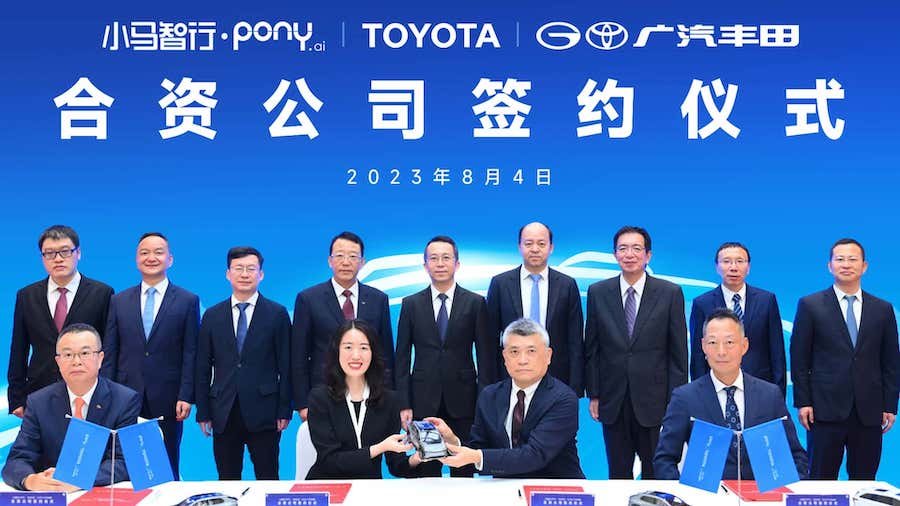Toyota Forms Joint Venture With Pony.ai To Mass Produce Robotaxis In China

Toyota Motor China Investment (TMCI), GAC Toyota Motor Co. (GTMC), and Pony.ai have announced they will form a joint venture with the purpose of mass producing Level 4-capable autonomous taxis and deploying these robotaxis at a large scale, the three entities said in a joint statement.
Startup Pony.ai already operates around 200 Toyota and Lexus branded self-driving taxis in all four Tier-1 cities that allow driverless cars on public roads in China – Guangzhou, Beijing, Shanghai, and Shenzhen – either for testing or public robotaxi operations, after becoming the first autonomous driving company to get a taxi license in the country.
The three entities that will form the new joint venture will invest a combined $139.2 million (RMB 1 billion), with GTMC providing Pony.ai with Toyota-branded EVs which are equipped with the automaker’s vehicle redundancy systems that are suitable for Level 4 autonomous driving development. The driverless Toyota taxis will run on Pony.ai’s newest robotaxi platform known as PonyPilot+.
Back in April, the self-driving startup deployed the Toyota Sienna Autono-MaaS (S-AM) vehicle equipped with its sixth-generation autonomous driving software and hardware on public roads for testing in Beijing and Guangzhou.
The collaboration between Pony.ai and Toyota goes back to 2019, when the two companies announced they would work together to kickstart the development of autonomous vehicles in China, resulting in the first Lexus RX450h units equipped with self-driving tech hitting the streets of China in September of the same year.
Last week, the Japanese automaker – which is considered by many EV enthusiasts as being a laggard in the adoption of an all-electric lineup – said that it will boost its development efforts in China, where its market share slipped 2.8 percent in the first half of the year in the face of increasing competition from local car brands.
Furthermore, although Toyota will continue to invest in plug-in hybrids and hydrogen-powered vehicles, it also plans on engineering a brand-new, BEV-only architecture that will underpin as many as 1.7 million vehicles set to be manufactured by 2030.


